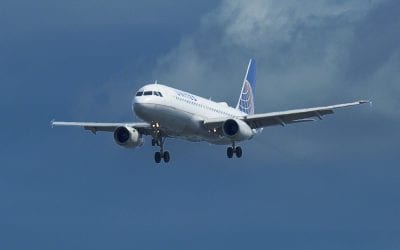Two of the largest advocacy groups working to protect travelers have asked airlines to reduce airfares and fuel surcharges in light of the dramatic drop in jet fuel prices. Experts and pundits have proffered many explanations as why airlines are not passing these massive savings along to passengers. However, so far passengers have heard nothing from airlines in the form of an explanation.
While fuel prices were soaring, the airlines never missed any opportunity to tell passengers and the American public about their struggles with increasing fuel costs. Fuel costs were used as the excuse for “unbundling” airfares and instituting the unpleasant and still expanding world of baggage fee, reservation fees and scores of others.
It is time that airlines began explaining to the public about why they are refusing to lower airfares. Especially, since airlines worked so hard to explain why they were “forced” to raise these airfares when faced with the opposite situation.
We know that the airlines have received this letter. Travelers United has already received phone calls from the airlines about the missive.
Here is the letter sent to every airline CEO. This one was sent to Doug Parker, CEO of American Airlines.
Doug Parker
Chairman and Chief Executive Officer
American Airlines Group Inc.
P.O. Box 619616
DFW Airport, TX 75261-9616
Mr. Parker:
We are writing to ask why you have not lowered your airfares in light of the 50% reduction in jet fuel prices since June, 2014.
When prices increased after 2009, airlines were quick to raise prices or add fuel surcharges, noting that fuel was the No. 1 airline expense. But now that fuel prices have dramatically declined, airlines are not reducing prices but instead increasing them and reducing flights.
Airlines have also benefited greatly from debt and union contract relief, lower interest rates, outsourcing and computerization of distribution channels, antitrust exemptions for airline alliances, and protection against foreign competition. But these savings are not being passed on to consumers to any degree.
Gasoline pump prices have declined so much that many Americans will reconsider driving instead of flying. As you know, corporate jets companies have effectively reduced pricing and increased their convenience. They have been growing rapidly, taking many first class and business class passengers away from airlines.
The major argument for airline deregulation was that competition would lower prices and provide more flight convenience. Instead we are seeing extremely high airline profits coupled with cartel-like behavior as well as poor reliability and increased travel times.
Concern is growing that that airline price increases are due to airline mergers, price coordination or collusion, and/or antitrust exemptions. This is leading to calls for government investigations and even re-regulation of air fares. Some are even calling airlines the new OPEC, based on the post merger practice of reducing flights and increasing prices in the face of growing demand in order to gouge consumers.
We therefore urge you to immediately order air fare reductions. This would set an example of responsible corporate behavior and show that price competition in the airline industry is not dead.
Flyersrights.org is the largest nonprofit airline passenger organization with over 50,000 members. It was the principal advocate for the 2009 Three Hour Rule ending tarmac confinements, for truth in scheduling regulations by the DOT, and for 2012 airline passenger rights legislation.
Charles Leocha, Chairman of Travelers United, is a member of the DOT Advisory Committee for Aviation Consumer Protections and has testified before both houses of Congress about aviation consolidation, price transparency and security. His organization advocates for the entire spectrum of travelers.
Paul Hudson, a leading advocate for airline passenger rights and interests for over 20 years, represents the public on the air safety regulation matters before the FAA, and has testified many times before Congress on aviation consumer, security and safety issues.
Sincerely,
Paul Hudson, President, FlyersRights.org
Member, FAA Aviation Rulemaking Advisory Committee
218 D St SE, 2nd Floor, Washington, DC 20003
(410) 940-8934, [email protected]
Charles Leocha, Chairman, Travelers United
Member, DOT Advisory Committee for Aviation Consumer Protection
1200 N. Nash Street, Suite 554, Arlington, VA 22209
(202) 713-9596, [email protected]
The airlines owe consumers an explanation about why they are not lowering airfares. We should not be ignored.
After all, it is the consumers that keep the aviation system funded. Passengers pay virtually all taxes that fund airports, the Department of Transportation, air traffic control systems, airport operation and construction, immigration controls and agricultural inspections.
Most airlines are paying NO CORPORATE TAXES or excise taxes.
• They are excused from paying their corporate income taxes by virtue of large loss carry-forwards and don’t expect to pay income taxes for around two years.
• User fees that support the aviation system are paid for exclusively by passengers, the users.
•Airports are funded with municipal bonds and through passenger facility taxes — all paid for by consumers and passengers.
Some airline CEOs, specifically Richard Anderson, CEO of Delta Air Lines, have clearly said that passengers will pay any tax increases in the future.
Photo from Wikimedia

Charlie Leocha is the President of Travelers United. He has been working in Washington, DC, for the past 14 years with Congress, the Department of Transportation, and industry stakeholders on travel issues. He was the first consumer representative to the Advisory Committee for Aviation Consumer Protections appointed by the Secretary of Transportation from 2012 through 2018.



